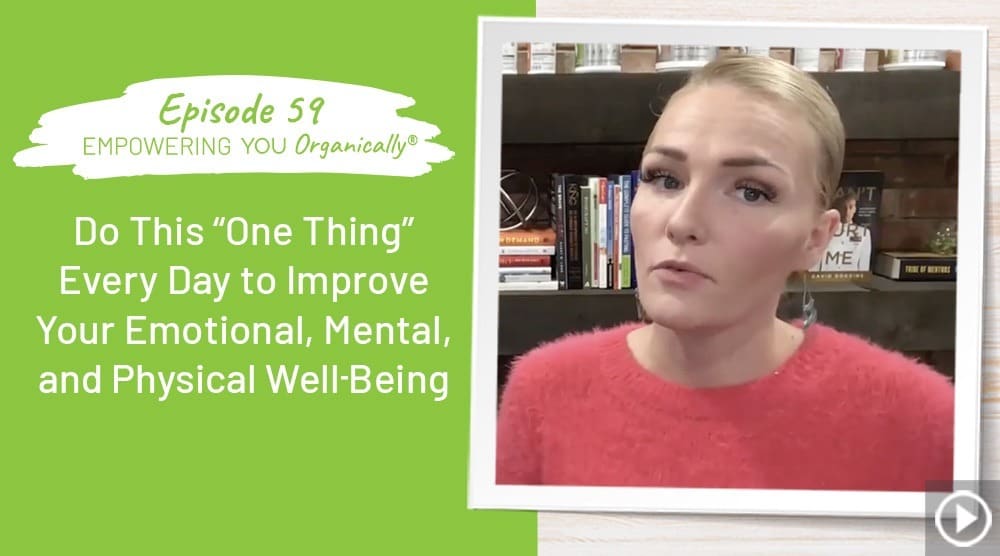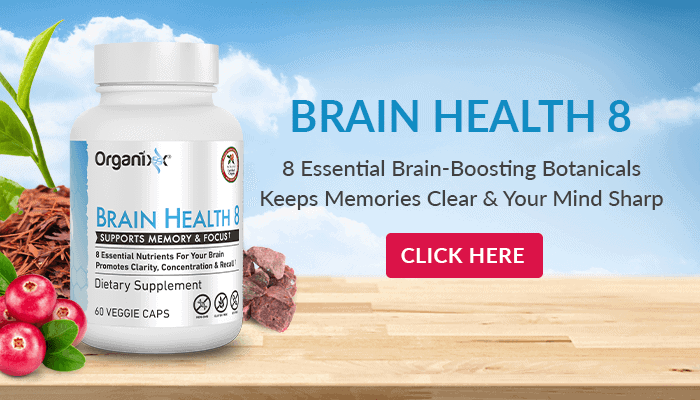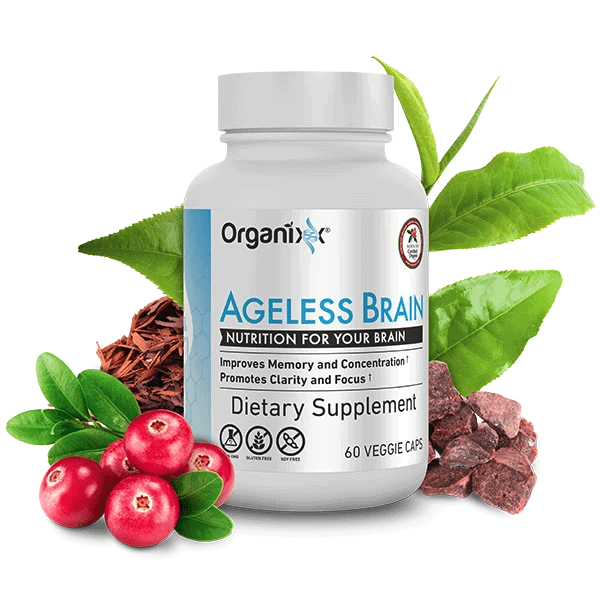Empowering you Organically – Season 8 – Episode 59
Title: Do This “One Thing” Every Day to Improve Your Emotional, Mental, and Physical Well Being
Hosts: Jonathan Hunsaker, TeriAnn Trevenen
Description: Gratitude. It’s just not something to shine a light on in November each year. We’ve dug up some fascinating research on the positive benefits having an attitude of gratitude will make on your health and well-being. Tune in to hear the research and tips on starting your own daily gratitude practice.
Featured Product
- Delivers powerful natural compounds scientifically shown to grow new brain cells and BOOST memory
- Rejuvenates and re-energizes your brain cells – and helps your brain stay YOUNG as you age
- Puts an end to brain fog… embarrassing senior moments… forgetfulness… trouble concentrating… and more!
- Promotes a calm, focused mind and balanced mood
- Supports healthy inflammation levels
- Made with organic herbal ingredients sourced from the Amazon rainforest
* * *
The holidays are here and it’s historically a hard time emotionally for many. And as we’ve discussed often… your emotions do impact your health and overall well-being! We wanted to explore the science of gratitude with you and offer some tips to help make the holidays just a little bit brighter this year.
Scientists have discovered that feelings of gratitude can actually change your brain. Feeling gratitude can also be a great tool for overcoming depression and anxiety.
What Is Gratitude?
Robert Emmons, perhaps the world’s leading scientific expert on gratitude, argues that gratitude has two key components, which he describes in a Greater Good essay, “Why Gratitude Is Good.”
“First,” he writes, “it’s an affirmation of goodness. We affirm that there are good things in the world, gifts and benefits we’ve received.”
In the second part of gratitude, he explains, “we recognize that the sources of this goodness are outside of ourselves. … We acknowledge that other people—or even higher powers, if you’re of a spiritual mindset—gave us many gifts, big and small, to help us achieve the goodness in our lives.”
Emmons and other researchers see the social dimension as being especially important to gratitude. “I see it as a relationship-strengthening emotion,“ writes Emmons, “because it requires us to see how we’ve been supported and affirmed by other people.”
Because gratitude encourages us not only to appreciate gifts but to repay them (or pay them forward), the sociologist Georg Simmel called it “the moral memory of mankind.” This is how gratitude may have evolved: by strengthening bonds between members of the same species who mutually helped each other out.
This really is a ‘thing’!
Universities have entire departments with focused research on happiness and gratitude. Researchers from Berkeley identified how gratitude might actually work on our minds and bodies. They provided four insights from their research suggesting what causes the psychological benefits of gratitude.
- Gratitude unshackles us from toxic emotions
- Gratitude helps even if you don’t share it
- Gratitude’s benefits take time & practice. You might not feel it right away.
- Gratitude has lasting effects on the brain
Breakdown of Benefits
Physical
• Stronger immune systems
• Less bothered by aches and pains
• Lower blood pressure
• Exercise more and take better care of their health
• Sleep longer and feel more refreshed upon waking
Psychological
• Higher levels of positive emotions
• More alert, alive, and awake
• More joy and pleasure
• More optimism and happiness
Social
• More helpful, generous, and compassionate
• More forgiving
• More outgoing
• Feel less lonely and isolated.
The Key to Well-Being?
“Building the best life does not require fealty to feelings in the name of authenticity, but rather rebelling against negative impulses and acting right even when we don’t feel like it,” says Arthur C. Brooks, author of Gross National Happiness, in a column in the New York Times. In the article, from 2015, he argues that “acting grateful can actually make you grateful” and uses science to prove it.
A 2003 study compared the well-being of participants who kept a weekly list of things they were grateful for to participants who kept a list of things that irritated them or neutral things. The researchers showed that the gratitude-focused participants exhibited increased well-being and they concluded that “a conscious focus on blessings may have emotional and interpersonal benefits.”
Understand this…..The participants didn’t begin the study any more grateful or ungrateful than anyone else, and they didn’t change their lives during the study so that they’d have more to be thankful for. They just turned their outlook to one of gratitude, and they were happier for it.
How Do You Practice Gratitude?
- Tony Robbins’ Guided Imagery – Gratitude Practice
- He was on a podcast with Tim Farris, and he did like a seven-minute clip, and he walks you through how to feel gratitude from a way he’s learned how to do it.
* * *
Subscribe to Empowering You Organically
Never miss an episode!
APPLE PODCASTS SPOTIFY GOOGLE PODCASTS





